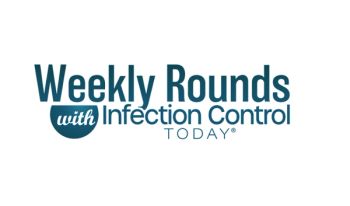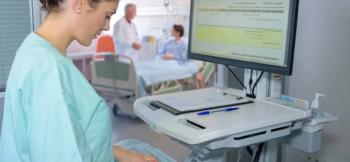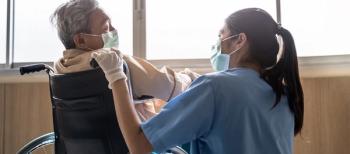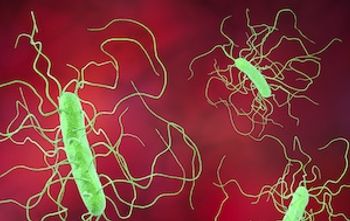
An IP can use their expertise to make decisions that will lead to cost savings and improved design flow.

An IP can use their expertise to make decisions that will lead to cost savings and improved design flow.

Take 5 minutes to catch up on Infection Control Today’s highlights for the week ending June 17.

The encouraging method used in the facility to raise the percentages was the answer to creating a positive response from the team.

Collaboration of a team from Inova Health with La Forma Medical developed an isolation gown that was cooler, better fitting, and more environmentally-friendly than disposables.

The wearable wristband works with location sensors throughout the hospital to track HH and HCW behavior, and then pairs with an app that analyzes individual performance.

One key opinion leader speaks of infection prevention challenges with prone patients and benefits of centralized surveillance systems in 2 separate presentations at the APIC 2022 annual conference.

“Of all the SSIs we culled over that 3 years, about 42% of them required a wound class change by an infection preventionist,” Emily Grohs, MPH, CIC, tells ICT®.

The infection preventionist’s role extends far beyond simply surveillance activities and into an integrated member of design and operations.

The bioburden disparities among the various locations sampled could mean HCWs are not practicing proper hand hygiene before using or moving WOWs. It could also reflect the number of touches or a discrepancy in cleaning methods.

Health care worker hand hygiene compliance ticked up during COVID, but levels remain low nationwide. A 3-hospital network in Illinois wanted to know why.

The IP’s role in vaccine compliance has traditionally centered on influenza shots, but that all changed with SARS-CoV-2.

Trained observers at a pediatric hospital in south Texas relied on the app for hand hygiene observation collections between June 18 and November 30, 2021, and logged a 140% increase in observations collected.

Crystal Heishman, MBA, MSN, RN, ONC, CIC: “You don’t ever want to go into a sterilization department and say, ‘You’re doing this wrong’. Because they’re the subject matter experts. You want to learn. You want to learn the process. You want to work together because it makes a stronger partnership.”

The primary organization representing the infection preventionists who often coordinate vaccination efforts at hospitals says that COVID-19 vaccines should be mandatory.

Tania Bubb, PhD, RN, CIC: “I think there are many heroes to celebrate, but specifically, because we’re talking about infection preventionists, I want to highlight the work that they have done, and the positions that they had to manage and the flexibility and the agility that they had to exhibit during the pandemic.”

“IPs reported more empowerment, credibility and value to their facilities during the pandemic,” states a study unveiled today at the annual APIC conference.

Elizabeth Jefferson, PhD, CIC: “You have to really pay attention and make sure that it [Candida auris] stays contained so that you don’t have an outbreak. It just takes one case.”

In the midst of a COVID-19 surge, a hospital was able to limit the spread of Candida auris to the initially infected patient.

Holly Taylor, MPH, CIC: Using retired IPs can “create a little bit more bandwidth within the department when you have potentially prolonged vacancies because we do know that IP staffing vacancies last longer than other health care vacancies.”

Karen Jones MPH, RN, CIC: “It’s really key to have a good written infection prevention and control plan at the hospital level but then also at the nursing home level. And what keeps that up to date? It’s an infection preventionist who’s knowledgeable, who’s been educated, who’s been trained, who’s certified.”

A five-year survey in Michigan seeks to determine if enhanced relationships between nursing homes and hospitals might facilitate better infection prevention in nursing homes.

Barbara Smith, RN, BSN, MPA, CIC: “I think that we need to do a little bit more with the public in terms of antibiotic use in the community. So that they’re not at risk for C. diff for whatever reason later in their life.”

The infection prevention department at Ascension Texas managed to shore up IP ranks by calling a couple of IPs out of retirement and asking another if she would postpone her retirement during a COVID-19 surge.

The rates of Clostridioides difficile remained about the same in March, April, May of 2020 as they were during the same 3 months in 2019, according to the study.